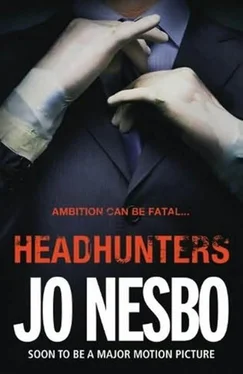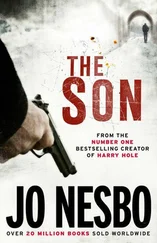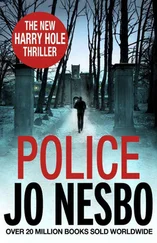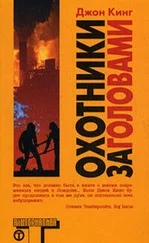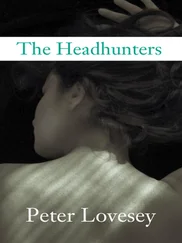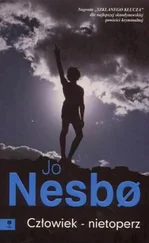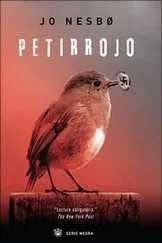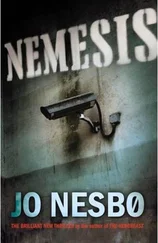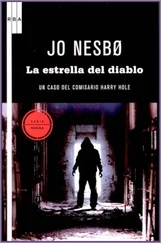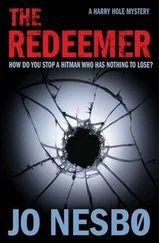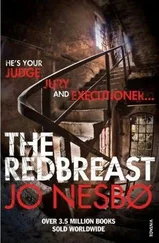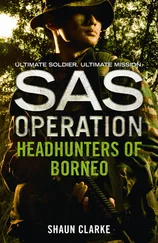Two gum-chewing, heavily made-up teenage girls with school bags, tight trousers and muffin tops came towards me. They glared briefly, but didn’t stop talking in loud voices about something that obviously annoyed them. As they passed, I caught a ‘I mean… so unfair!’ I guessed that they were skipping school, were on their way down to a cake shop in Årvoll, and that the unfairness was not directed at the fact that eighty per cent of the earth’s population could not afford the cream buns they were about to tuck away. And it struck me that if Diana and I had had the child, she would – I was convinced it would be a girl even though Diana had already called it Damien – have looked at me one day with the same mascara-heavy eyes, shouted that it was unfair, for Chrisssake, she and her girlfriend wanted to go to Ibiza and after all they were old enough and would soon be leaving school! And that I… I could have managed, I think.
The road passed a park with a large pond in the middle, and I took one of the brown paths leading to a group of trees on the other side. Not because it was a short cut, but to get the dot on Greve’s GPS to move off the street map. Bodies can be moved around in cars, but they don’t move through the landscape. It was confirmation of the suspicion that my wake-up call from Lotte’s place this morning would have planted in the Dutch headhunter’s head: that Roger Brown had risen from the dead. That Brown had not been lying in the mortuary at Rikshospital as it had seemed from the GPS, but presumably in a bed in the same building. But they had said on the news that everyone in the car was dead, so how…?
I may not be particularly empathetic, but I am a good judge of intelligence, so good that I am used to hiring leaders for Norway’s biggest companies. So while I plodded around the pond, I again went through Greve’s probable reasoning at this moment. Which was simple. He would have to come after me, have to exterminate me, even if it involved much greater risk than before. For I was no longer just someone who could put a stop to HOTE’s plans for taking over Pathfinder, I was a witness who could put him in the slammer for the murder of Sindre Aa. If I was allowed to live long enough for the case to come to court.
In short, I had sent him an invitation he could not refuse.
I had arrived at the other side of the park, and as I passed the clump of birch trees, I stroked my fingers along the thin, white, peeling bark, pressed them lightly against the hard trunk, bent my fingers and scraped my nails across the surface. Smelt my fingertips, stopped, closed my eyes and breathed in the aroma as memories of childhood, play, laughter, wonder, gleeful horror and discovery flooded back. All the tiny things I thought I had lost but which were there, of course, encapsulated, they didn’t disappear, they were water children. The old Roger Brown had been unable to recapture them, but the new one could. How long would the new one live? Not much longer now. But it didn’t matter, he would live his last hours more intensely than the old one had lived all his thirty-five years.
I was hot when I finally saw Kjikerud’s place. I walked up into the edge of the forest and sat down on a tree stump where I had a good view of the terraced houses and blocks of flats along the road. And established that people in east Oslo do not have the same wide array of views that those living in west Oslo have. We could all see the Post Giro building and the Plaza Hotel. The town didn’t come across as any uglier or more attractive. The only difference was that basically you could see the western side from here. Which made me think of the story about Gustave Eiffel and the famous tower he had built for the World Expo in Paris in 1889; the critics said the finest view in Paris was from the Eiffel Tower because that was the only place in Paris where you couldn’t see it. And I wondered if perhaps that was what it was like being Clas Greve; that the world for him had to seem a slightly less hideous place. Because he couldn’t see himself through other people’s eyes. Mine for example. I saw him. And I hated him. Hated him with such a surprising intensity and passion that it almost frightened me. But it was not a muddied hatred, quite the contrary, it was a pure, decent, almost innocent hatred, in the same way that the crusaders must have hated the blasphemers. And that was why I could sentence Greve to death with the same measured, naive hatred that allows the devout Christian American to send his death-row neighbour to the execution chamber. And in many ways this hatred was a purifying sensation.
It made me understand, for example, that what I had felt for my father was not hatred. Anger? Yes. Contempt? Maybe. Pity? Definitely. And why? Many reasons, to be sure. But I saw now that my fury originated from my feeling, deep down, that I was like him, that I had it in me to be exactly like him: a drunken, penniless wife-beater who thought east was east and could never be west. And now I had become him, definitively and in full measure.
The laughter bubbled up inside me, and I did nothing to stop it. Not until it resounded among the tree trunks, a bird took off from a branch above me and I saw a car coming down the road.
A silver-grey Lexus GS 430.
He had come faster than I had expected.
I got up instantly and walked down to Kjikerud’s house. Standing on the step, about to insert the key into the lock, I looked at my hand. The shaking was imperceptible, but I saw it.
It was instinct, an ur-fear. Clas Greve was the kind of animal who made other animals afraid.
I found the keyhole at first attempt. Turned the key, opened the door and went quickly into the house. Still no smell. Sat up on the bed, shifted backwards until I was sitting with my back against the headboard and to the window. Checked that the duvet covered Ove lying beside me.
Waited. The seconds were ticking. And my heart was, too. Two heartbeats a second.
Greve was cautious, that went without saying. He wanted to make sure I was alone. And even though I was alone, he knew now that I was not as harmless as he had initially thought. Firstly, I must have had something to do with his dog’s death. Secondly, he must have been there, seen her body and known that I was capable of killing.
I didn’t hear the door open. Didn’t hear his footsteps. Only saw him standing in the doorway in front of me. His voice was gentle and the smile genuinely apologetic.
‘Sorry to burst in on you like this, Roger.’
Greve was dressed in black. Black trousers, black shoes, black roll-neck, black gloves. On his head a black woollen hat. The only thing that was not black was the gleaming silver Glock.
‘That’s fine,’ I said. ‘It’s visiting time.’
IT IS SAID that a fly’s perception of time, the reason it experiences the palm of a hand zooming towards it as yawningly slow, is due to the fact that the information it receives through its facet eyes contains such a large amount of data that nature has had to equip it with an extra-fast processor so as to be able to deal with everything in real time.
For several seconds there was total silence in the sitting room. How many I don’t know. I was a fly and the hand was on its way. Kjikerud’s Glock pistol was directed at my chest; Greve’s eyes at my shiny pate.
‘Aha,’ he said at length.
This one word contained everything. Everything about how we humans have been able to conquer the earth, rule over the elements, kill creatures that are greater than ourselves in speed and strength. Processor capacity. Greve’s ‘Aha’ came at the end of an avalanche of thoughts, the search for and filtering of hypotheses, relentless deductive powers that together led to an inevitable conclusion: ‘You’ve shaved off your hair, Roger.’
Читать дальше
